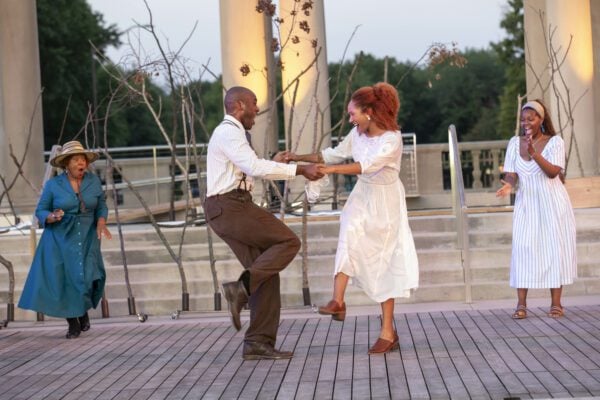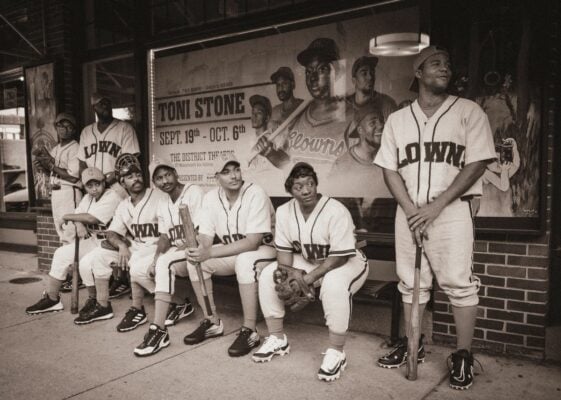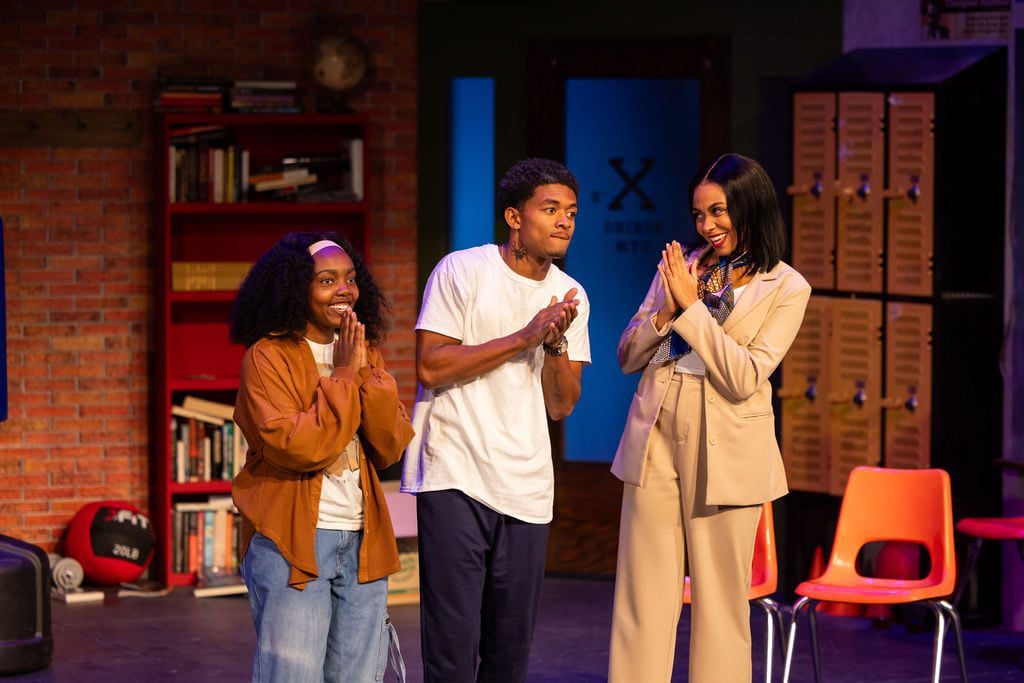When it comes to the performing arts, there are a few tropes — or recurrent themes — typically reserved for Black characters that should probably be discussed.
“I think the biggest things that happen in professional theater have a lot to do with the roots of our oppression,” said LaKesha Lorene, founding director of the Naptown African American Theatre Collective (NAATC). “It really speaks to who’s writing it and how it’s written, because it’s not something I think we need to not talk about because our existence in this country is derived and rooted in oppression and the continual fight for equality.”
Ben Rose, founding artistic director of the Indianapolis Black Theater Company (IBTC) said gospel is prevalent in Black theater, especially as it pertains to a character experiencing trauma and then the Lord helping them through it.
Although, overdone does not always mean irrelevant, Rose said. For example, many people can resonate with stories about characters who were incarcerated and are now grappling with reentry or finding inspiration after release, such as in Loy A. Webb’s “Judy’s Life’s Work.”
So, in the spirit of telling Black stories rooted in truth and humanity, here are a few things to think about.
Trauma theater
Sometimes these tropes or character types get a bit more complicated, Lorene said. In Black theater, specifically comedy, it is common for men to dress up as women to portray mothers, grandmothers or auntie characters — most famously seen in Tyler Perry’s Madea character and in the show “In Living Color.”

Although many people still enjoy these portrayals and the slapstick comedy of them, Lorene believes it is overplayed.
“I think it would be nice to see more grounded portrayals of that that are still just as rooted in comedy but allow space for the people who actually live in these bodies to do it,” Lorene said.
Dee Dee Batteast’s “No AIDS, No Maids: Or Stories I Can’t F*ckin’ Hear no More,” is a one-woman play entirely about tropes. It brings to light how often Black women are left to play the mothers, the mammies or the best friend instead of the love interest, the heroine, the ingenue or genius role, Lorene said.
READ MORE: REVIEW: ‘Wicked’ is a delight for the holiday season
Many archetypes and stereotypes for Black characters or family dynamics exist in these spaces because of trauma, Rose said. Lack of mental health care in Black communities has pushed communities to process trauma in different ways, including in arts and culture.
“We have learned to mix our transmutation of trauma through the stage as a healing process,” Rose said. “But the problem is, it doesn’t necessarily equate to entertainment.”
Of course, there are issues and themes that should not be left behind but there are a few that should be let go in pursuit of more positive images onstage, Rose said.
Everything comes back in a cycle. Think about how often a show will include a cheating spouse, a womanizer brother or husband who lies to his wife, Rose said. Normalizing these kinds of themes also runs the risk of conditioning people to like the process of entertaining others’ trauma and drama, Rose said.
“If the main topic of the show is always suffering — is always one dimensional in that way — it takes away our power as a people,” Lorene said. “We’ve always done a lot with little or with less than others, less than the white community, and we’ve always made miracles … I don’t think we need to shy away from it, but I think we need to start thinking about, ‘Okay, what are we trying to say?’”
Tired theater
The goal of the NAATC and the IBTC is to produce people-centered stories and support Black playwrights, artists and industry professionals. So, overly preachy theater, stereotypes and trauma plays are out.
“I’m really tired of seeing things that are trying to teach people how not to be racist,” Lorene said. “I don’t want to have to be proving myself as an actor. I don’t want to have to prove my humanity to you.”

Rose is tired of seeing the same shows produced repeatedly.
From a business standpoint, people are more likely to spend money on tickets to shows they are familiar with; however, producing the same plays that were popular in the past, are mainstream now or do not have as much relevance to what is happening now gets old, Rose said.
But, to move forward in a way that celebrates good theater, there has to be a change.
Supporting theater
“Well, first of all, people have to go see theater,” Rose said. “It’s not that we don’t have people willing to go out on a frozen December evening … it’s that we haven’t developed a love and a respect for what theater does for our community, and so we need to develop that both at an early age by exposing people to theater.”
When new works are not supported — both financially and by audiences — those stories are not told.
The best way to ensure these people-centered, Black stories are accessible to the community is by going to see them, Rose said. Supporting these works helps everyone involved in the industry improve and put out works the community is interested in.
Organizations like the NAATC, the IBCT and Asante Arts Institute of Indianapolis are in the business of Black theater and do majority new works, Lorene said.
“We’re creating that space for us as a community,” Lorene said. “We’re leading that charge, so all we need is for people to just trust that they will, and they always do … get something out of it.”
The IBTC launched its inaugural Black American Playwriting contest on Dec. 2, the NAATC is continuing to host their Education For All workshops through Dec. 20 and Asante Arts hosts Prep4Life, an arts program geared toward youth throughout the year, which culminated in a holiday concert on Dec. 15.
Both organizations announced their 2024-2025 season, featuring works such as Zora Howard’s “Stew,” March 13-30 at the Phoenix Theatre Cultural Center and Jordan E. Cooper’s “Ain’t No Mo’” at the District Theater. For more information, visit naatcinc.org/season, asanteartinstitute.org and indyblacktheater.org.
Contact Arts & Culture Reporter Chloe McGowan at 317-762-7848. Follow her on X @chloe_mcgowanxx.
Chloe McGowan is the Arts & Culture Reporter for the Indianapolis Recorder Newspaper. Originally from Columbus, OH, Chloe graduated with a degree in journalism from The Ohio State University. She is a former IndyStar Pulliam Fellow, and her previous work includes freelancing for Indy Maven, Assistant Arts & Life Editor for The Lantern, and editorial assistant at CityScene Media Group. Chloe enjoys covering all things arts and culture — from local music, visual art, dance, theater and film, as well as minority-owned businesses. In her free time, Chloe enjoys reading, cooking and keeping her plants alive.





